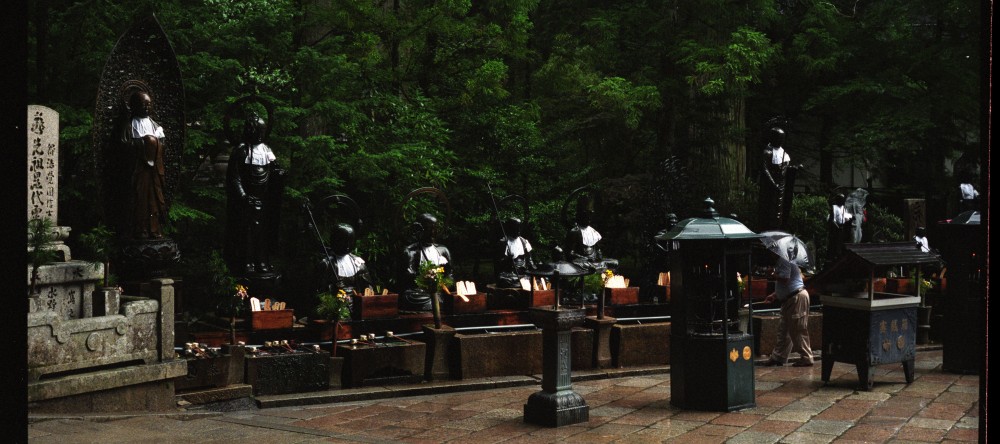The phrase “White Buddhism” is being used to identify a particular ideology, in just the same way that “free market capitalism” might be used to identify a particular ideology. This is why the orthography is “White” and not “white.”
As an ideological system it is not a well-bounded set, but rather a set of mutually supportive ideas with fuzzy boundaries. It is the consequence of the mutual support of the system that one specific idea can be replaced with another with little or no disruption to the system as a whole. The new idea is integrated into the place and function of the one displaced. (Okay, yes, if you’ve encountered it, do think “Indra’s Net.”)
As an ideological system, it is not identical with a social category, such as race: “White” is not “white.”
As an ideological system, it is not identical with a social category, such as class: “White” is not “upper middle class.”
And yes, reflexively, social categories are themselves social constructs and can serve in ideological systems.
As an ideological system it does not, and indeed cannot identify any particular individuals, or groups, or institutions. Individuals and groups and institutions may hold or embrace or promote the ideology. Just as individuals and groups and institutions may hold or embrace or promote “free market capitalism.”
Because they generally arise in the service of the interests of some particular group over those of another group, ideological systems—even those that declare equality a central tenet—can be used in an oppressive fashion.
The preceding paragraph is carefully worded so as to indicate that it is not the ideological system that is somehow inherently oppressive, but rather its deployment in social relations by individuals and groups. In this regard, however, one may wish to invoke the distinction between sins of omission and sins of commission. The source analogy is that white privilege is as much about omission as it is commission.
Although values and value judgements may be included within the system, ideological systems per se are value neutral. It is in their use and the consequences of that use that allow for value judgements, which are of course always comparative, the comparison being made against some other ideological system.
An example: an ideological system structured around karma and rebirth as central elements may be used either to promote universal love, compassion and kindness toward all living beings (“all living beings have been your mother and father in past lives”), or to promote exclusion and denial of the handicapped or diseased (“it is a consequence of the bad karma of their past lives and they need to suffer to work it off”). I have labeled this “the indefinite malleability of doctrine.”
And yes, the suggestion for this category name as a way of identifying and asserting the coherence of a particular ideological system arises out of my own experience and personal history. That, however, neither supports nor refutes the category as such. Considering it to do so is to engage in an ad hominem fallacy, whether positively or negatively.
Oh and finally, yes, I do know that I’m not able to issue deity-like mandates. This is a suggestion for what I believe to be a useful tool for thinking about a particular way that Buddhism is currently being thought about. And finally finally, yes, it’s neither a perfect nor universal tool.

I have the working habits of a cat, so it would take me several posts (meaning I expose people on Facebook to my insufferableness) to articulate my thoughts concisely like this. This is great and a pleasure to read too.
“Although values and value judgements may be included within the system, ideological systems per se are value neutral. It is in their use and the consequences of that use that allow for value judgements, which are of course always comparative, the comparison being made against some other ideological system.”
I’d like to add my own gloss on this point, to make a more reparative kind of comment rather than just a provocative one, as my previous comments were.
My preferred angle is: when we are addressing the systemic operations of White Buddhism, we are not just making value judgments by examining their uses and consequences *comparatively* against other systems. We are examining the effects of harm performed and endured through un/intended actions (of the entanglement of meaning and matter) *intra-actively* and *intersectionally* across differing lines of affliction and affiliation. In other words, in talking about White Buddhism, I am uninterested in talking about dharma. Rather, I want to make effort to bear witness truthfully and become responsive to the harm suffered through our entanglement with the world. I’m happy to let others seek or make claims of authenticity.
Thanks for writing this post, Richard.
Great post. It feels like a question. At least it’s surfacing in me a desire for examples or principles that might differentiate White Buddhism from another ideology.
It certainly brings some images to mind. For example, perfectly even tempered westerners bent on living an unperturbed lifestyle, or people who view Buddhists as such (which by the way which feels like the antithesis of a fully lived and appreciated life).
I wonder, also, if White is not too loaded a term. I imagine you pondered this heavily. My argument against using it would be that if you’re naming an ideology, then the “idea” might be more suitable. What idea does “White” represent?
Finally, what’s the motive for naming a new ideology? Is it in response to a perceived heresy or are you naming the heresy?
Would love to hear this fleshed out.
Pingback: Richard K. Payne
Pingback: “White Buddhism”: it’s not an insult, it’s an ideology | Richard K. Payne